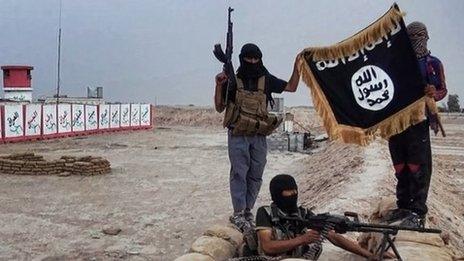Russian students targeted as recruits by Islamic State
- Published
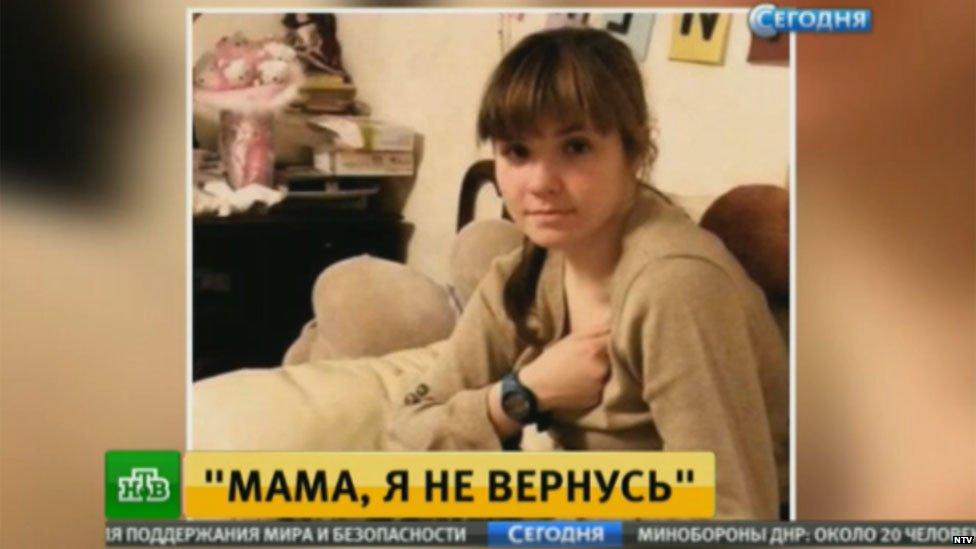
"Mum, I'm not coming back", Russian TV quoted Varvara Karaulova as saying as she left for Syria
In the first two weeks of June, Varvara Karaulova, a 19-year-old Russian student at Moscow State University, received more air time on Russian television than even President Vladimir Putin.
With no obvious Middle East connections other than the fact that she was studying Arabic, Miss Karaulova made headline-grabbing news after she disappeared from the Russian capital and was reported to be heading to Syria to join the Islamic State (IS) militant group.
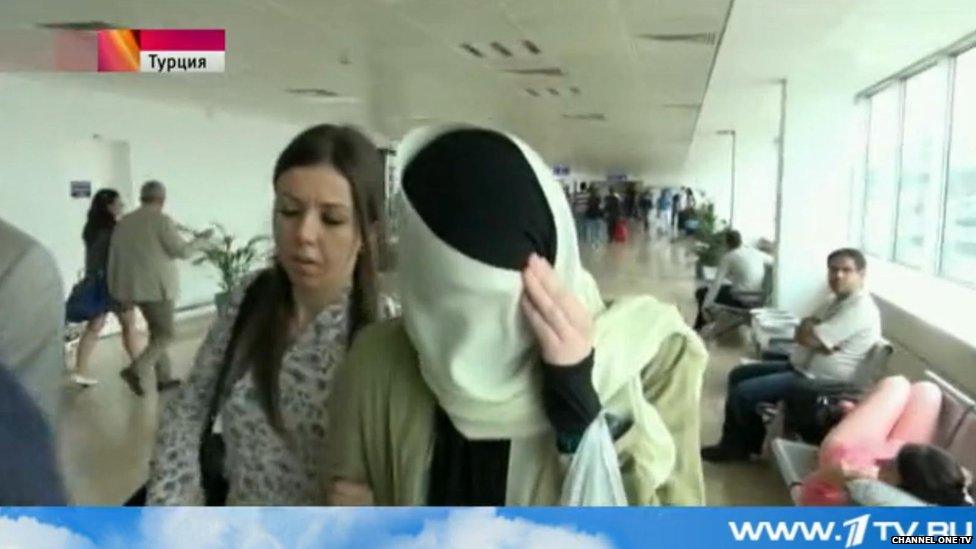
Karaulova's arrival back in Moscow was widely covered in the Russian media
Her story was closely followed by all of Russia's major media outlets until she was detained near the Turkey-Syria border, flown back to Moscow and handed back to her relieved father, who had initiated the search for his daughter.
Thousands of Russian followers
Ms Karaulova's case is not unique. Two weeks after her return, Mariam Ismailova, another young woman studying at a well-regarded university in Moscow, went missing amid suspicions that she was also on her way to join IS.
Several other students attending universities in large Russian cities are reported to have followed suit. Their fate remains unknown but the considerable media interest in their stories has prompted senior officials to start disclosing figures on just how many Russian nationals are believed to be fighting for IS.

Brought up in a Muslim family, Mariam Ismailova was attending university in Moscow
Russia's Federal Security Service estimates that Russian passport-holders could account for as many as 8% of IS fighters.
"The numbers are becoming really upsetting," Russian Deputy Foreign Minister Oleg Syromolotov said on 7 July. "There are currently about 2,200 people from Russia taking part in military operations in Iraq and Syria," he revealed.
Why Russians?
According to Alexei Malashenko, from Moscow's Carnegie Centre, Russian is now the third most used language within IS's self-proclaimed caliphate, after Arabic and English.
And IS has increased its Russian-language propaganda output over the course of this year. In March, IS began broadcasting its daily Al-Bayan Radio news bulletins online in Russian in a range of formats. In early May, the group released the first edition of a new Russian-language magazine called Furat.Press. Later the same month, IS's multilingual media outlet, HMC, published a more sophisticated Russian-language magazine called Istok (The Source).
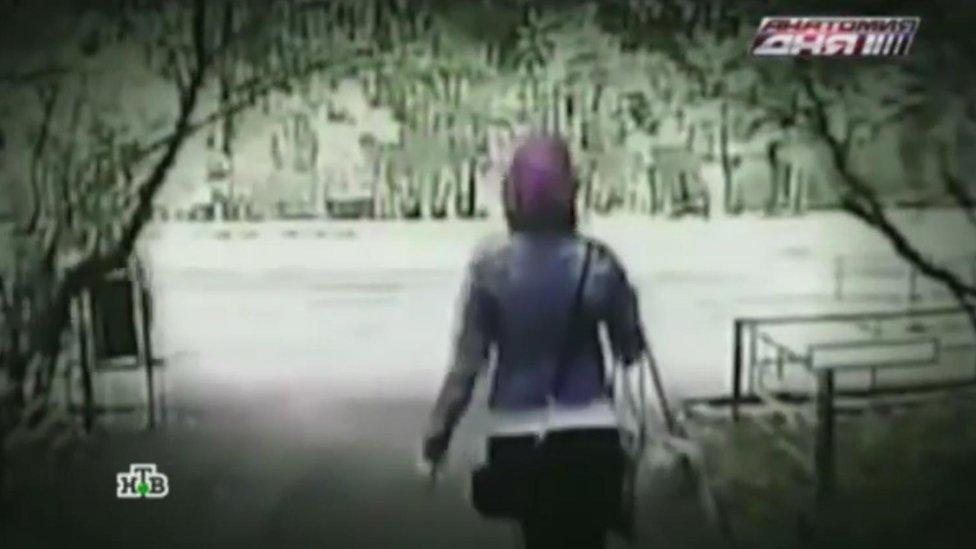
Russian channel NTV broadcast CCTV footage said to be of Mariam Ismailova
Many officials and observers agree that IS propaganda has steadily become more effective. They note that at least a few of the Russians leaving the country to join IS come from regions other than Muslim-majority areas in the south.
Students and young people are often recruited through social media, and leave Russia with the promise of love, affection and a better life under IS.
Followers from all walks of life
Many Russians were already familiar with reports of militants from the North Caucasus joining IS.
More people are leaving the Muslim-majority southern republic of Dagestan to join IS than any other Russian region, according to Varvara Parkhomenko, an expert at the International Crisis Group.
Many of the recruits are from Chechnya as well as from Orthodox Christian North Ossetia, she said.
And they come from all walks of life, she pointed out. "Poor or rich, well-educated or not... people are going not only to battle but to live, to marry, to preach."
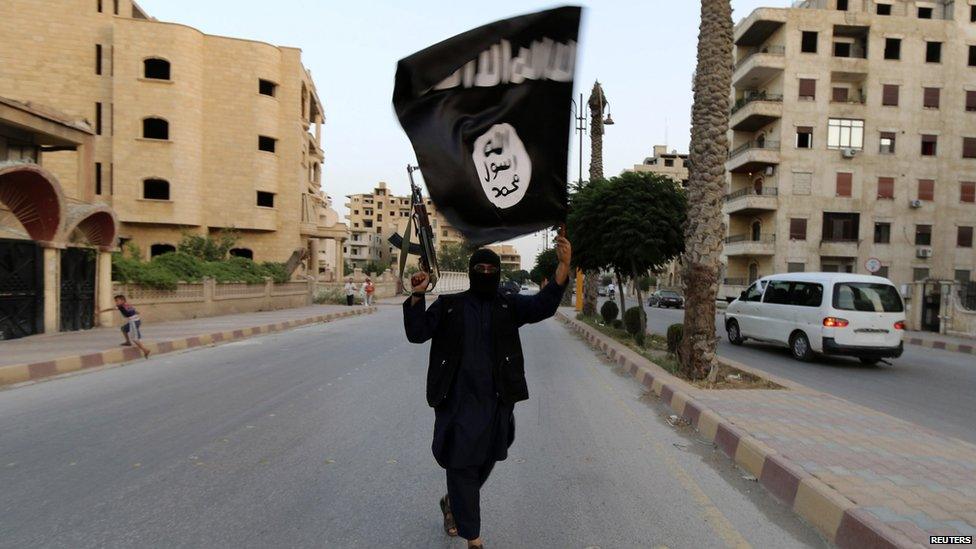
In recent months IS propaganda has increasingly been targeting Russian-speakers
The reports have prompted pundits and officials alike to voice concern about the extent of the IS recruitment network in Russia and the effectiveness of the messages that the group directs at Russian audiences.
BBC Monitoring reports and analyses news from TV, radio, web and print media around the world. You can follow BBC Monitoring on Twitter, external and Facebook, external.
- Published21 July 2015
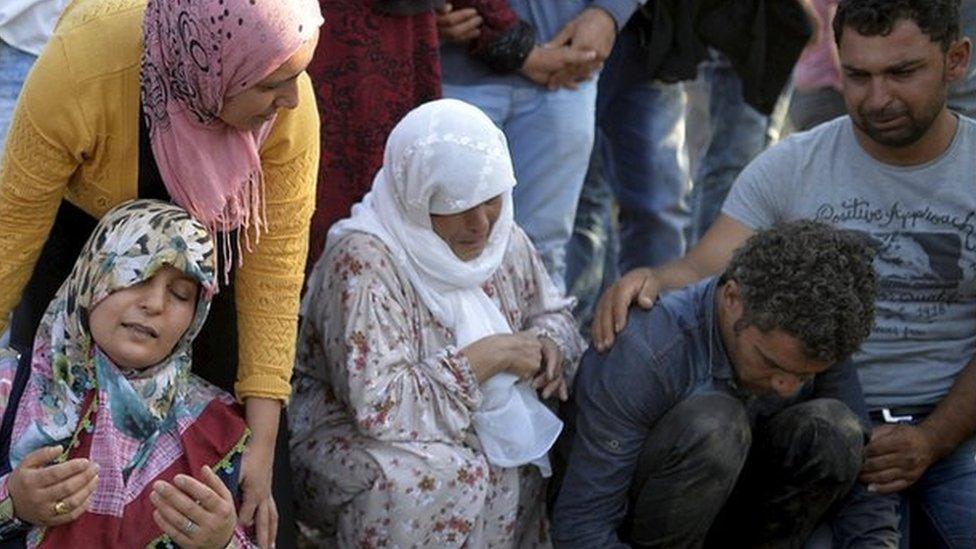
- Published30 June 2015
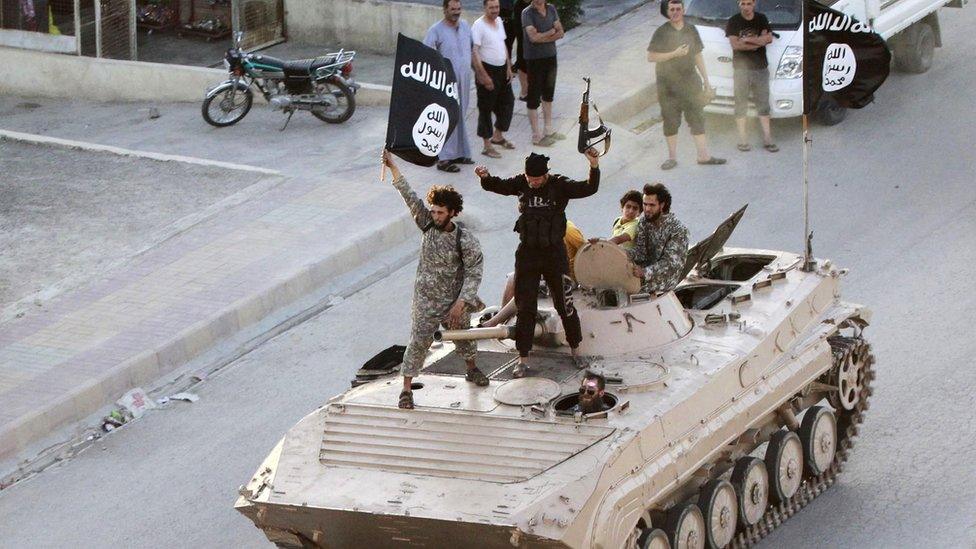
- Published2 June 2015
